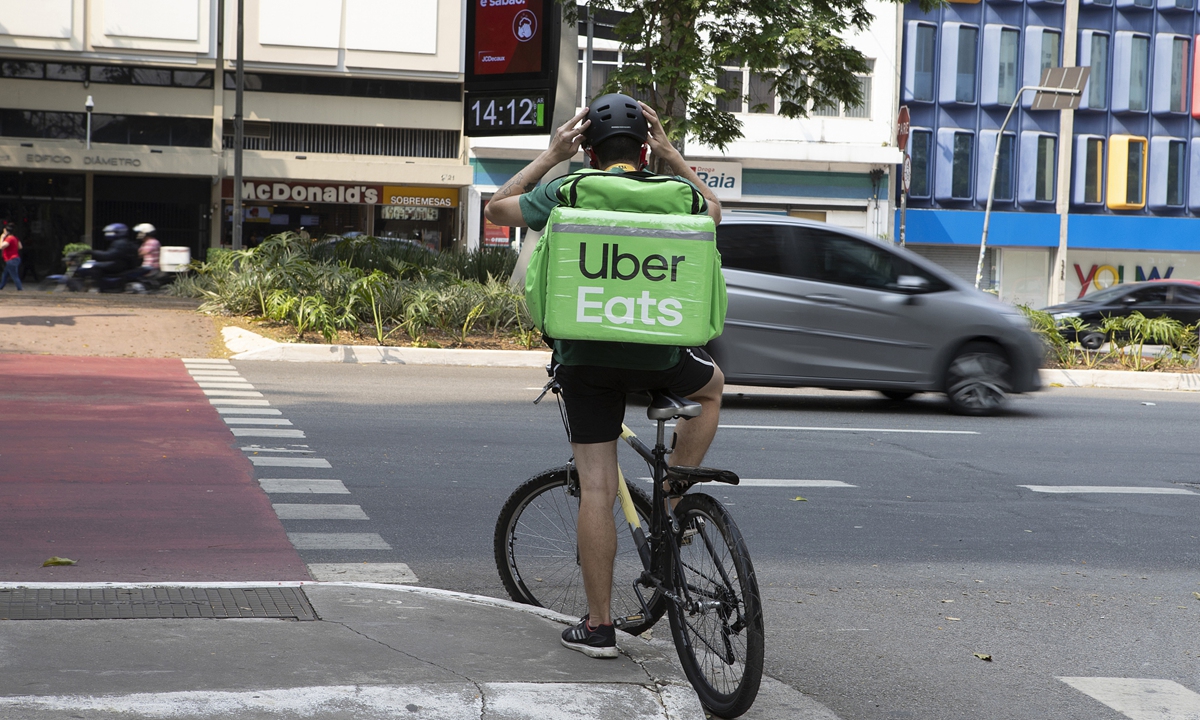Shift to online work accelerating due to global pandemic
Gig workers need better protection
The United Nations called Tuesday for urgent international regulations ensuring fair conditions for gig workers paid via digital platforms such as food delivery apps - a form of employment that has rocketed during the pandemic.

They range from taxi-booking apps to services connecting customers with a plumber or a freelance website developer.
And the shift to finding work via such platforms has accelerated during the pandemic, due to soaring job losses and increasing demand for home deliveries in countries where restaurants and retail have been shut.
"Since the COVID-19 outbreak, the labor supply on platforms has increased significantly," the ILO said.
The increased competition was in some cases forcing workers to accept less money per job than before, it added. And some sectors heavily reliant on online platforms, such as ride-hailing, have seen a drop in business, causing difficulties for drivers not receiving a regular salary.
A survey of taxi drivers in Chile, India, Kenya and Mexico found that nine out of 10 had lost earnings due to COVID-19, some having to take out loans or defer bill payments to get by.
"Seven out of 10 workers indicated not being able to take paid sick leave, or to receive compensation, in the event they were to test positive for the virus," the report said.
The report also highlighted some of the upsides of the rise of digital labor platforms, for companies and workers alike.
The shift has given businesses access to a large flexible workforce with varied skills, while providing new opportunities for some demographics including women, people with disabilities and the young, it said.
These workers however have only limited protections because they are beholden to the platforms' terms of service agreements - which are often unilaterally determined.

A Uber staff in Brazil Photo: VCG
The number of online platforms offering work has grown fivefold over the last decade, according to a report released by the International Labour Organization (ILO), a UN agency.They range from taxi-booking apps to services connecting customers with a plumber or a freelance website developer.
And the shift to finding work via such platforms has accelerated during the pandemic, due to soaring job losses and increasing demand for home deliveries in countries where restaurants and retail have been shut.
"Since the COVID-19 outbreak, the labor supply on platforms has increased significantly," the ILO said.
The increased competition was in some cases forcing workers to accept less money per job than before, it added. And some sectors heavily reliant on online platforms, such as ride-hailing, have seen a drop in business, causing difficulties for drivers not receiving a regular salary.
A survey of taxi drivers in Chile, India, Kenya and Mexico found that nine out of 10 had lost earnings due to COVID-19, some having to take out loans or defer bill payments to get by.
"Seven out of 10 workers indicated not being able to take paid sick leave, or to receive compensation, in the event they were to test positive for the virus," the report said.
The report also highlighted some of the upsides of the rise of digital labor platforms, for companies and workers alike.
The shift has given businesses access to a large flexible workforce with varied skills, while providing new opportunities for some demographics including women, people with disabilities and the young, it said.
These workers however have only limited protections because they are beholden to the platforms' terms of service agreements - which are often unilaterally determined.
